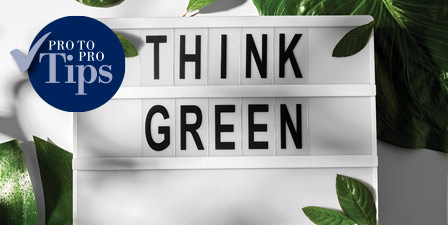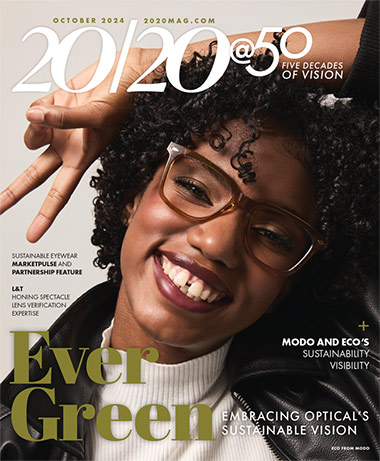
By Rebecca Soto, ABOC, NCLEC
As an optician, you use a lensometer on a daily basis. A lensometer measures the optical properties of a pair of eyeglasses and may be referred to as a focimeter. It’s an ophthalmic instrument that is most often used to ensure that a pair of eyeglasses has been fabricated to the correct prescription. It is important for opticians to have the ability to accurately perform neutralization of spherical and compound lenses, in addition to bifocal and progressive lenses. Most important, opticians should be the masters of reading prism.
Start with the basics: When teaching lensometry, start with the basics. First and foremost, it is important to focus the eyepiece. This ensures the lensometer is adjusted for your eye. To do this, you must rotate the eyepiece counterclockwise until the reticle is blurred. A white card or piece of paper held behind the eyepiece may make the reticle lines more visible. Then, turn the eyepiece clockwise until the reticle is just clear.
Next, calibration. Turn the power wheel into the plus, then slowly decrease the power until the lensometer target (sphere and cylinder lines) is sharply focused. The power wheel should read zero if the instrument is in proper calibration.
The position of the eyewear is important. Glasses should be positioned on the lensometer by placing the back surface against the lens stop, with the temples pointing away from you. Move the lens table up against the bottoms of the eyewires so the lens is approximately centered on the lens stop, then lower the lens holder gently against the lens front surface.
Beginners should read the power of single vision spherical lenses. After glasses are positioned in the lensometer properly, turn the power wheel into the plus, then begin to slowly decrease the power until the target starts to focus. Make sure the target is centered in the reticle. Record the power and notate “sphere.” After mastering several spherical single vision lenses, continue on to spherocylindrical lenses.
If you are a seasoned optician trying to share your knowledge with others, start with these basics. These initial lensometry skills will prepare an optician to become a master of lensometry in the future.












